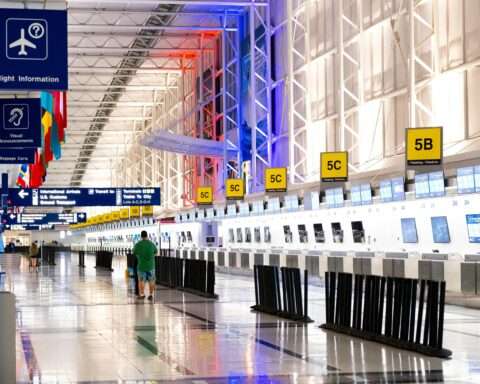The U.S. Department of Energy (DOE) is unveiling $43 million in funding to advance transformative clean energy technologies that can reduce greenhouse gas emissions and energy usage nationwide. The funding will support the DOE’s commitment to industrial decarbonization and maintain America’s manufacturing competitiveness in global markets.
Part of the DOE’s Technologies for Industrial Emissions Reduction Development Program, this funding will support 21 total projects addressing industrial decarbonization, 16 cross-sector technologies projects and five in partnership with the Electrified Processes for Industry without Carbon (EPIXC) Institute. All projects receiving awards in this round will bolster technological and economic competitiveness of domestic manufacturing, boost the viability of U.S. industrial technology exports and advance the clean, equitable energy economy.
RELATED: DOE advances innovative hydrogen sensor technology research, development
Of the $43 million in awards, $38 million will fund projects focusing on cross-sector technologies that reduce energy usage and greenhouse gas emissions. Cross-sector technologies refer to innovations made in energy and water usage that have the potential to greatly reduce greenhouse gas emissions and wastewater in the industrial sector.
The 16 selected projects will advance cross-sector technologies’ research, development and pilot-scale demonstrations with a focus on high applicability and high emissions reduction potential. With funds administered by the DOE’s Industrial Efficiency and Decarbonization Office (IEDO), these projects will adhere to one of three topical areas under the cross-sector technologies umbrella: Electrification of Industrial Heat, Efficient Energy Use in Industrial Systems, and Decarbonizing Organic Wastewater and Wet Waste Treatment.
Projects awarded funds under the Electrification of Industrial Heat will pursue initiatives that reduce emissions related to industrial heating processes.These projects will be allocated over $12 million.
One such project, led by Blue Mountain Energy, is the High-Efficiency Zero-GWP Oil-Free Industrial Heat Pump project in North Las Vegas. The project will be allocated $3 million and represents the largest project in this topical area.
In partnership with several entities, Blue Mountain Energy will develop a high-lift air-source oil-free closed-cycle mechanical vapor compression heat pump that will enable better performance at higher temperatures in industrial facilities’ heat pumps.
Projects supporting the Efficient Energy Use in Industrial Systems topical area will focus on increasing energy efficiency at the technological and facility levels. Awarded nearly $15 million, the six projects will take unique approaches to energy efficiency initiatives.
One approach, allocated $2.28 million, will design, build and demonstrate a high temperature heat exchanger called the radiative exchanger. The project, led by Bloom Engineering and Pre-Heat Inc. in Illinois, will save fuel and reduce emissions while improving heat exchangers’ durability. Additionally, the project will demonstrate advancements in material-based modeling for industrial implementation.
The third topical area will fund projects that reduce the direct and indirect emissions and energy use related to wastewater and wet waste treatment. Projects under this umbrella will be allocated a total of nearly $12.5 million to pursue their initiatives.
Representing this topical area, the University of Tennessee in Knoxville proposes to use nanobubbles in water resource recovery facility aeration processes to reduce scope one and scope two greenhouse gas emissions, particularly nitrous oxide. The project is slated to receive $2.5 million from the DOE to develop nanobubble technology that’ll improve oxygen transfer and decrease energy requirements for water aeration.
These cross-sector technology projects will additionally support goals echoed in the DOE’s Industrial Heat Shot Summit, calling for at least 85% lower greenhouse gas emissions by 2035.
The DOE’s announcement also includes $5.2 million in awards for five projects that will cost-effectively lower emissions, enhance energy efficiency and expedite industrial decarbonization. The IEDO will distribute the funds to projects in partnership with the EPIXC Institute, a federal program under the DOE that utilizes public and private partnerships to advance clean energy initiatives.
The five selected projects will begin research and development on several decarbonization initiatives, including electric infrastructure case studies, steel manufacturing combustion process electrification and limestone and clay electrified calcination as a cement replacement.
One project, allocated $1.1 million, will be led by the University of Texas at Austin. The university will investigate grid synchronized distillation as an alternative for industrial heating. The process would allow more efficient operation of reboiler heating in distillation columns and provide an opportunity for the facility to run periodically to decrease non-clean energy usage. Focusing on hybrid heating arrangements, the project provides valuable insights on several electrified heating pathways.
Importantly, a selection for award is not a commitment of funds from the DOE. The DOE’s announcement of award selections will kick off the award negotiations process before the department departs any funding or grants.
Photo by Bryan Williams on Unsplash













